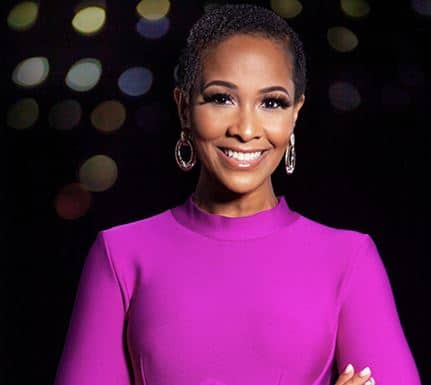
Lyndsay Levington understands the power of storytelling, so when she was diagnosed with breast cancer, she wanted to share her story to inspire and empower others.
“I boarded a very fast train, a very, very fast train,” Lyndsay Levingston said of the moment she learned she had breast cancer. She had discovered a lump in her right breast and assumed it was a cyst. At her well woman exam, her OBGYN ordered a mammogram, Lyndsay’s first. She underwent a 3D mammogram and a breast ultrasound, followed by a biopsy.
The results showed Lyndsay had triple negative breast cancer, an aggressive form of the disease. Lyndsay was 37 years old and breast cancer wasn’t anything she’d thought about. She had an active, busy life in New York City, where she worked in media. “The doctor said I needed to start treatment immediately,” Lyndsay said. She packed a suitcase and booked a ticket to Houston, Texas, where she was from, so she could undergo treatment near her family.
Within weeks, Lyndsay met with her breast surgeon, an oncology fertility specialist so she could freeze eggs and her oncologist. “Everything happened so quickly,” she recalled. “The initial plan was for chemotherapy, radiation and a lumpectomy.” Halfway through treatment, a cousin reached out to Lyndsay.
“You have to do genetic testing,” the cousin told her. “This runs in the family.”
Lyndsay had no idea. “When my doctor initially asked if there was breast cancer in my family, I said no. No one on my maternal side had it,” she said. “I didn’t know it ran rampant on the paternal side of my family.”
Genetic tests showed Lyndsay is a BRCA1 gene mutation carrier, which completely changed the course of her treatment. She underwent chemotherapy, followed by a bilateral mastectomy with breast reconstruction and surgery to remove her ovaries and fallopian tubes to reduce the risk of her developing ovarian cancer.
Having worked in media, Lyndsay was keenly aware of the power of storytelling. Realizing that throughout her own journey, she didn’t see women who looked like her or told stories she could relate to, Lyndsay decided to tell her own story and start a nonprofit called SurviveHER, to inform, inspire and empower women about breast cancer awareness and wellness.
“We don’t talk much about genetic testing in the Black community,” Lyndsay said. “So I wanted to educate women about that, so they understand why it’s important. And about breast health and the signs and symptoms of breast cancer.”
While Lyndsay’s own quality of care was very good, she knows full well that she was lucky. Not everyone has the same access to care she had. “My doctor is a Black woman and she’s an advocate to make sure her Black patients receive the best care and the best quality of care,” Lyndsay said. “I was excited Komen created Stand for H.E.R. to focus on the needs and disparities in care affecting Black women, and that they’re looking for ways to decrease that gap.”
This is especially important to Lyndsay. Through her nonprofit’s work, she wants to help women who are underserved find access to appropriate health care. “We know access is a concern, we know finances play a part and a lack of health insurance,” she said. “That’s why this work is so important.”
Lyndsay has completed treatment and returns to her doctor for biannual checkups. “It never crossed my mind I could be diagnosed with breast cancer,” she said. “You never know if it will happen to you or someone close to you. I didn’t really know how much breast cancer affects the Black community, and that’s why it’s so important to be educated about it and to have access to quality care.”
Statements and opinions expressed are that of the individual and do not express the views or opinions of Susan G. Komen. This information is being provided for educational purposes only and is not to be construed as medical advice. Persons with breast cancer should consult their healthcare provider with specific questions or concerns about their treatment.



